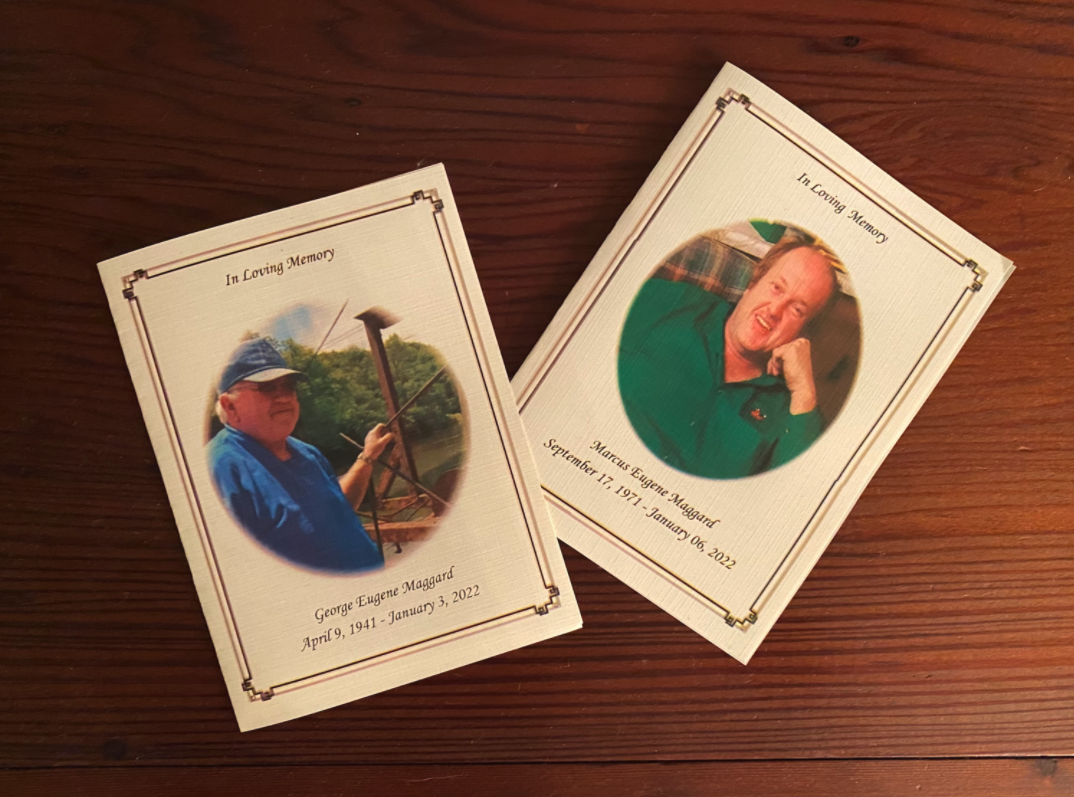Two generations of Akers Ferry caretakers — and decades of collective knowledge and passion for the region’s people and waterways — disappeared in January when Eugene Maggard, and his son, Marcus Maggard, passed away within three days of one another.
Eugene was 80, and Marcus was 50. Both father and son had COVID-19.
My heart hurt when hearing this news. While each day of life brings change, it feels we’ve been in a whirlwind over the past two years. Many of those shifts have been tragic, such as the untimely deaths of many we thought would carry on much longer. These realities are life-altering in the present, but will also likely impact our region’s shared future for years to come.
In the case of Eugene and Marcus, I was struck by the void that their absence will create through Akers, an unincorporated community about 130 miles east of Springfield where their family has operated the ferry for around 70 years.
The Shannon County institution, one of few left in the region, began in the late 1940s and has been operated by the Maggard family for nearly that entire time. Their role began with Buck Maggard, Eugene’s father, who took over the operation in the early 1950s. In addition to the ferry, the family also operated adjacent Akers Ferry Canoe Rental, giving them the chance to “host” generations of visitors to the river.
I didn’t know Eugene or Marcus well. Eugene and I actually just made acquaintances last December at an annual gathering at Akers to celebrate the nearby Mt. Zion Church, a small rock structure his family helped build. The event was held outdoors in 2021 to help avoid the spread of COVID-19.
I also interviewed Marcus about the ferry a couple of years ago. Even in my limited interactions with them, both seemed like very nice people — a perception that was reinforced at a double funeral held for them.

On a cold and snowy January morning, dozens of people still made the trek to the Salem Christian Church to pay their last respects. Two wooden caskets were at the front of the sanctuary, both surrounded by flowers. Each supported a flag, just as Marcus and Eugene protected through service in the U.S. Armed Forces.
Words from the ministers eulogized the Maggard men. In addition to their work at the ferry and business, they both gave of themselves in other ways through volunteer service. After hearing the words from friends and employees, it was obvious that these men made a huge — “giant” was the word often used to describe their impact —difference with their lives, both on those who knew them and the region as a whole.
One speaker shared about crossing the river with Buck Maggard, the patriarch in the Maggard ferry legacy, which led to other trips with subsequent generations.
“I remember going across with Eugene, and I can remember going across with Marcus,” he said. “Quite a tradition; quite a heritage.”
“This river, this world, was God’s creation, and he (Eugene) felt that so passionately. He would want to be remembered with a smile.”
“I am a better person by having known him (Marcus), and he will truly be missed.”
“Eugene hired me when a lot of people wouldn’t. He was the dad my dad couldn’t be,” said one woman in the audience, who shared that at one point she interviewed him for a college project. “Because of him, I graduated with honors — but the honor was knowing him.”
“I don’t know if you could’ve found greater men in this world.”
“The past was a series of building blocks that bring us to the present. All of the past conversations we had are not gone, (but) I’ll miss the future ones.”

In recent days, I thought more about the aforementioned interview I had with Marcus. It was near the beginning of the COVID-19 pandemic, and Shannon County restricted non-essential visitors during April 2020 to help curb the spread of the virus. I wondered how the decision might be perceived and impact a business such as the one at Akers, and Marcus was gracious enough to allow me to come and visit.
Looking back, words in the article bring more pain today than I would have expected when they were originally written:
“Perhaps tourists — or the absence of them — is more front-of-mind right now than it has been in recent years. Given concerns over COVID-19, Shannon County is effectively closed to visitors. It’s a harsh reality for an area that usually starts to come alive with tourists this time of year.
For the Maggards, some supplemental income comes by logging. But their real income is from the canoe rental business. That fact raises extra concerns this year. Statewide orders are relaxing in the coming days, and Maggard and his family are left with a pressing question: “How do we keep everybody safe?”
“Yes, I would love to get things open right away, but we’ve got to do it safely,” he says
There is still discussion on how to do that, and where the biggest risks are. He does know, however, that the concerns come close to home.
“My dad is 79 years of age,” says Maggard. “Number one, he’s now trying to step back and let me do more. But he’s nervous about coming to work, because dad still comes to work every day. When we start dealing with people, he’s a little bit gun-shy.”
One way to put it: “This could be the best season we’ve ever had, or it could be the season that kills us.”
After Saturday’s funeral service concluded, a procession headed out through the slushy snowfall to Akers, which in good weather takes around 30 minutes to reach by car.
It’s a beautiful area. Bluffs and rolling hillsides texturize the land where few people live but many visit. This is particularly the case since Ozark National Scenic Riverways, the first federally protected river system, was founded in 1964.
It offers a unique balance: Deep generational ties contrast with tourists who have been frequenting the area for many years. To an outside visitor — and with its limited cell service — it feels to be in a world all its own.
There, in the local cemetery, the Maggard men will remain. While they will not continue the legacy of ferrying in person, their earthly bodies continue to mark a place where generations of their family have gone before.
Read the original story, published January 17, on Ozarks Alive.



